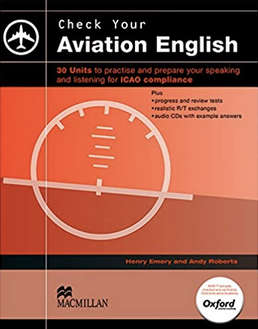English for Aviation: Review of Material, Websites, Courses
English is the international language of aviation, as it is in other industries such as engineering.
The International Civil Aviation Organisation (ICAO), which is a United Nations specialised agency, was established by nation states in 1944 to manage the administration and governance of the Convention on International Civil Aviation (Chicago Convention).
In 2008 this organisation announced that English must be used in aviation, they said “as aviation continues to grow, with almost 100,000 flights a day today and 200,000 daily expected by 2030, it’s imperative that ICAO continues to evolve and refine its safety support tools.
This helps to ensure that passengers around the world can continue to look to air travel as their safest means of rapid global connectivity.
The ICAO said that all pilots operating on international routes and all air traffic controllers who communicate with foreign pilots must be able to communicate using both the ICAO and simple English modes of expression, and must have their language proficiency in English formally assessed.
In the past you could use an interpreter if you didn’t speak English but that is no longer permitted.
ICAO English for Aviation Guidelines
ICAO has 6 levels of language proficiency:
• ICAO Level 6: Expert
• ICAO Level 5: Advanced
• ICAO Level 4: Operational
• ICAO Level 3: Pre-Operational
• ICAO Level 2: Elementary
• ICAO Level 1: Pre-Elementary
The minimum proficiency level for ICAO license purposes is Level 4. To be assessed at Level 4 or above ICAO, an air traffic pilot or controller must reach Level 4 in all 6 ICAO skill areas:
• Pronunciation
• Structure
• Vocabulary
• Fluency
• Understanding
• Interactions
The 12 topics identified for study are:
1. Runway incursion
2. Fuel
3. Landings
4. Technology
5. Gravity
6. Pressure
7. Health
8. Fire
9. Animals
10. Meteorology
11. Loss
12. Security
All quality material and courses will cover these topics.
It is important to remember that being a pilot or an air traffic controller are not the only roles where you need English for aviation, there are many others, each with different vocabulary.
For example there are also flight attendants, mechanics, airline ground crews etc.
Native English speakers will not have to show their proficiency, but the International Civil Aviation Authority instructed them to ensure they can be understood and to avoid “the use of idioms, colloquialisms and other jargon”.
Why is having one standard language in aviation such as English so important?
The reason is to improve safety standards. The ICAO has been working closely with the main aviation industry trade body, the International Air Transport Association (IATA), on the programme.
The IATA decided that English is to be used for communication between all pilots and controllers and will be used at major international airports.
This is because many aircraft from airlines of many different countries can be on the same radio frequency therefore it is crucial that pilots understand what is happening around them.
If you are a native Portuguese speaker and want to ensure that your fundamentals of English, including the present perfect, are correct then you can check out our 2020 online video course or 2016 Book which are made exclusively for Portuguese speakers.
Our video course on sale on Udemy for €29.99/69.99R$ "Eliminate the Mistakes that Portuguese Speakers Make in English". 4 hours of video exclusively for people that speak Portuguese. You can read more about it and watch free videos here.
The 2016 eBook "Eliminate the 63 Most Common Mistakes Portuguese Speakers Make in English" is €6.99 and is also available in Portuguese
Studying English for Aviation
Courses
There are many courses for English for aviation around the world in cities such as Cape Town, and in my own country of Ireland.
In Ireland the Welcome Ireland School located in Dublin’s city centre holds their English for aviation classes on the famous shopping street Grafton Street.
A 2-week course is €1185 and a 4-week course is €2300, prices are correct on September 30th 2021. http://welcomeireland.ie/courses/aviation-english-training-in-ireland/
The well-known Berlitz organisation, which has language schools all around the world, also offers aviation courses in Dublin. You can read about The Berlitz Dublin Aviation English Course here.
Material
There is also a range of materials out there so that you can study on your own, which is what we want to do on this website.
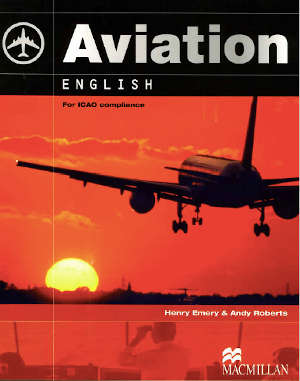
First we have Aviation English for ICAO Compliance by Henry Emery and Andy Roberts which is published by Macmillan. It was first published when the new requirements were introduced in 2008.
The structure of the book will be very familiar to anyone who has used English for Engineering or the Market Leader series of Business English books. You can see the index here.
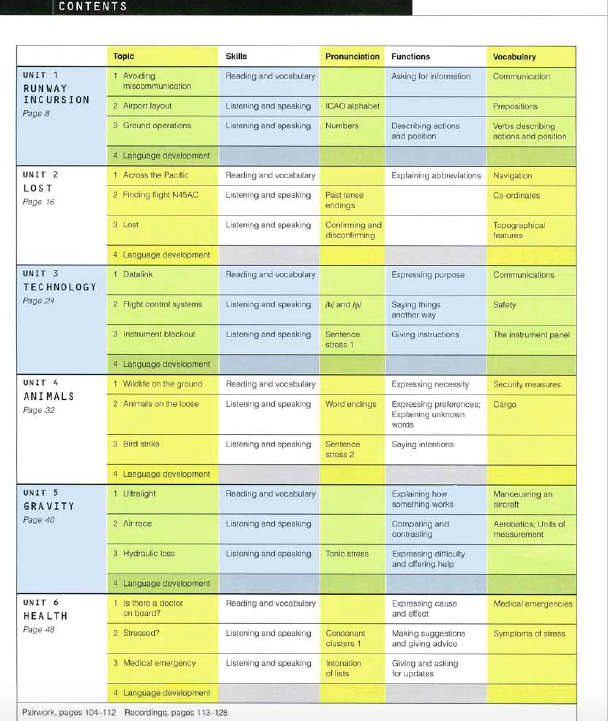
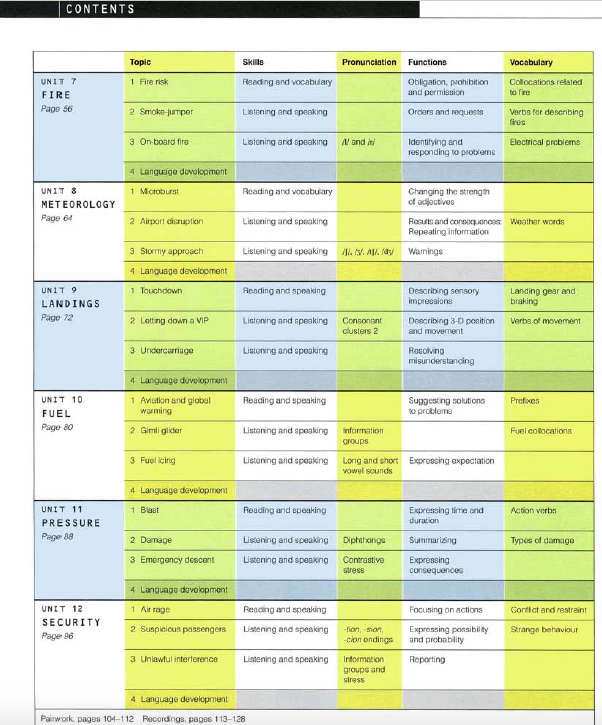
The ICAO rating scale is explained in-depth, again this might be familiar to people who taken IELTS or TOEFL.
The book is written to be used in a class with many students, for example ”work in pairs…” but it is fine if you are studying it by yourself. The book contains 12 units, 1 for each of the 12 topics mentioned in the ICAO guidelines. Each unit has 4 topics, each of these 4 topics is 2 pages long.
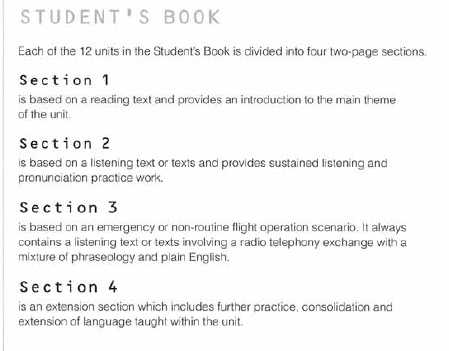
The format of each topic is very similar to the books mentioned above. First the topic is introduced in section 1, perhaps by reading an article on aviation or classroom discussion. Then there are some grammar and vocabulary exercises and the chance to do some speaking practice.
Section 2 and 3 have more in-depth practical exercises, often for groups. along with more grammar, speaking and listening practice.
Section 4 is on language development where you do standard exercises such fill in the gaps, rearrange the letters to form a word, describe parts of a diagram etc.
At the end of the book there is a pair work section with exercises that you can practice with a partner, along with transcripts of all the listening sections.
Naturally the book prepares the students for the ICAO exam and all essential vocabulary and common aviation situations are covered.
A big negative is that the publishers have not made the best use of modern technology. Unfortunately the book still comes with CD-ROM, when many computers no longer have a CD or DVD drive and many homes don’t have a CD or DVD player either.
It would be better if this data was available for download from the publishers site.
Aviation English by Henry Emery e Andy Roberts
However this is still a great choice from a publisher with a great track record in producing educational material.
Aviation English is another book and CD package you can study on your own, so again it would be better if the audio files were available for download. It also focuses on the topics and language structures required by pilots and air-traffic controllers preparing to gain ICAO level 4 language requirements.
The structure is a little different as it contains 30 two-page units instead of following the 12 ICAO topics. Each unit has activities to practise speaking and listening skills and to develop key vocabulary.
Cambridge are a world-renowned name in education and they produce excellent specialist technical English books, you can read my review on their English for Engineering book here.
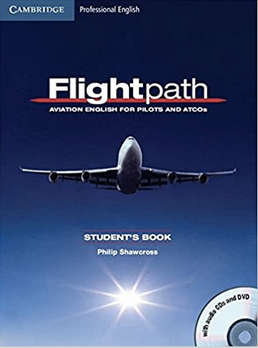
Their English for Aviation book is called Flightpath and is another course for pilots and air traffic controllers that you can study by yourself. It is for those who need an ICAO4 level of English to work in the industry.
Flightpath by Cambridge
A good option to study english for aviation.
Exams
The English for Aviation language testing is an ongoing process and the ICAO are developing an ICAO Homepage for the English Language Proficiency Programme (I-HELPP), to support nation states in the implementation of their Language Proficiency Requirements (LPRs), as well as Test Service Providers in the development and implementation of effective language tests.
As a result, the AELTS is currently suspended until the new service has been launched.
In the meantime the only recognised test they have is the following:
(ELPAC) English Language Proficiency for Aeronautical Communication is a test to assess ICAO English Language Proficiency for pilots and air traffic controllers. It is organised through Eurocontrol which is a pan-European, civil-military organisation dedicated to supporting European aviation.
At the time of writing 22,000 students have taken this exam, there are 300 ELPAC examiners and you can search for an exam centre on their website here.
YouTube/Blog/Websites
A simple search on Youtube for “English for Aviation” will bring up many great videos.
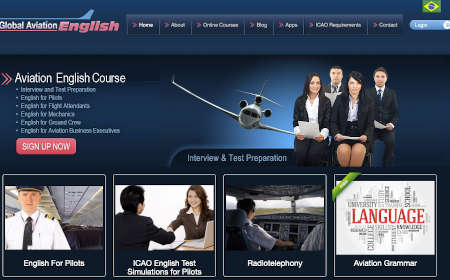
There is also a very interesting specialist blog from Brazil called Global Aviation English. The site is broken down into sections for pilots, executives, flight attendants. There are interview tactics and articles.
However when I checked on September 30th 2021 the last blog post was on February 5th 2019 and their Facebook page is no longer active, their last tweet was in December 2017.
However any specialist blog like this is worth taking a look at.
You can read about why English is an international language in here or read about the importance of English in your career.
Are you planning to work with aviation? If you have any tips or wants to share stories about aviation, leave in the comments below!

